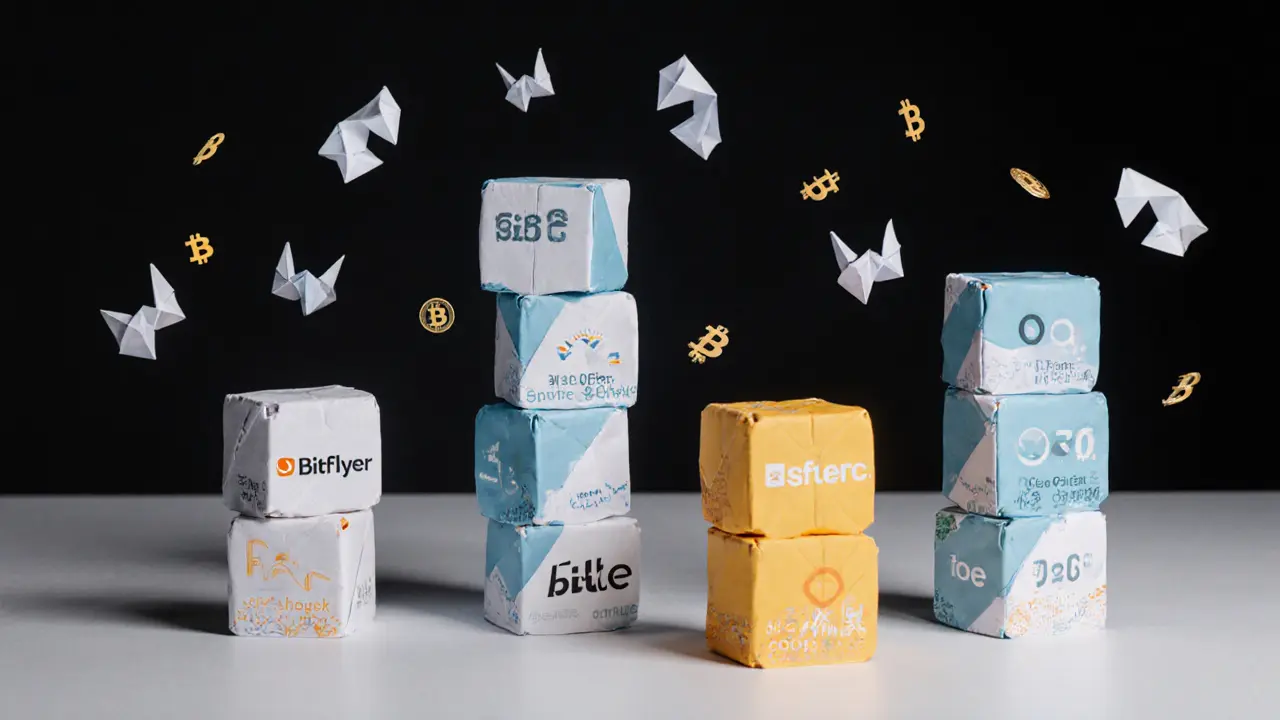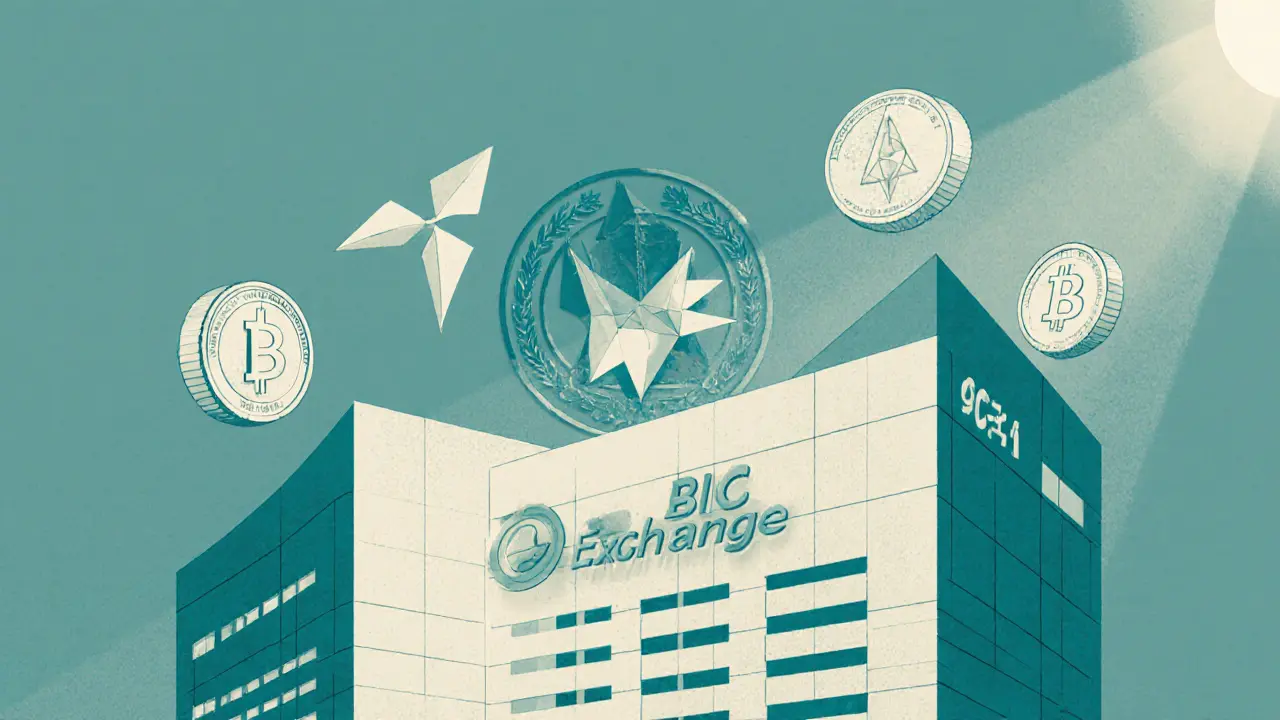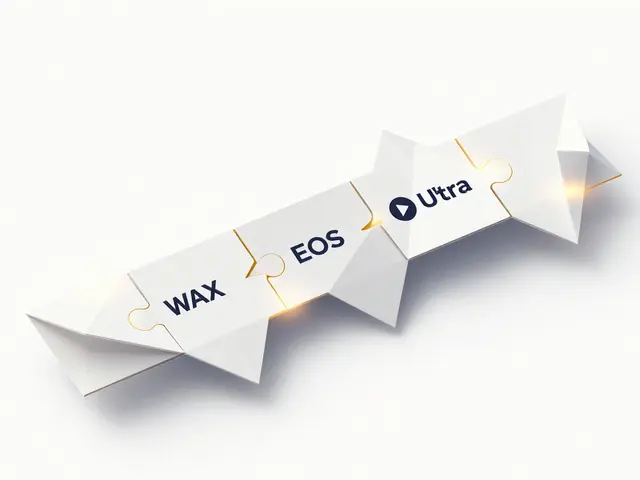BICC Exchange Fee Calculator
Estimated Trading Fees
BICC Exchange Fee Overview
- Spot Trading: 0.20% maker | 0.25% taker
- Futures Trading: 0.10% maker | 0.15% taker
- Bank Transfer: ¥250 flat fee per transaction
- Crypto Network Fee: Passed through unchanged
If you’re hunting for a crypto exchange that lives under Japan’s strict regulatory umbrella, you’ve probably stumbled on BICC Exchange review searches. This article breaks down what BICC actually offers, how safe it feels, where it shines, and where it falls short compared to the country’s bigger players.
What is BICC Exchange?
BICC Exchange is a centralized cryptocurrency exchange launched in 2018, headquartered in Japan, and licensed by the Japan Financial Services Agency (FSA). The regulator Japan Financial Services Agency requires every licensed platform to follow the 2017 Payment Services Act, meaning BICC must keep user funds separate, enforce KYC, and report suspicious activity.
The platform supports both spot trading and derivatives contracts, letting users swing between buying actual coins and speculating on price movements without owning the asset. Over 50 digital assets are listed, from the big hitters like Bitcoin (BTC) and Ethereum (ETH) to less‑known tokens such as Ripple (XRP) or Litecoin (LTC). All of this is wrapped in a Japanese‑language UI that many reviewers call “dynamic and user‑friendly”.
Key Features and Trading Options
BICC’s core offering revolves around three pillars:
- Spot market - direct purchase and sale of over 50 cryptocurrencies.
- Contract market - perpetual and quarterly futures on major pairs, suitable for leveraged trading.
- Payment flexibility - crypto deposits/withdrawals on multiple blockchains and traditional bank transfers for Japanese Yen (JPY).
For Japanese residents, the fiat‑on‑ramp works via local banks, letting you move JPY in and out without converting to a foreign currency first. International users can still trade, but they need a Japanese bank account for fiat moves - a hurdle that many global exchanges don’t impose.
Security and Compliance
Security is baked into the platform through three mandatory steps:
- Account creation with email verification.
- KYC submission - a government‑issued ID (passport or driver’s license) plus a selfie.
- Two‑factor authentication (2FA) using Google Authenticator or an SMS code.
Once verified, BICC stores the majority of user funds in cold wallets, a practice required by the FSA. No major security breach involving BICC has been reported on California’s DFPI Crypto Scam Tracker as of October2025, which is a reassuring sign compared to some newer exchanges that have faced hacks.
Fee Structure and Payment Methods
The fee schedule is simple but not the cheapest in the market:
- Spot trading fee - 0.20% maker, 0.25% taker (no volume‑based discounts).
- Futures fee - 0.10% maker, 0.15% taker.
- Bank transfer fee - flat ¥250 per inbound/outbound JPY transaction.
- Crypto network fee - passes the underlying blockchain’s cost; BICC does not mark up.
The lack of tiered discounts means high‑volume traders may find a better rate on BitFlyer or GMO Japan, but casual investors who trade once a month or less will likely not notice the difference.
How BICC Stacks Up Against Competitors
Below is a side‑by‑side snapshot of BICC versus the three biggest Japanese‑licensed exchanges. Data reflects October2025 public figures.
| Feature | BICC Exchange | BitFlyer | Coincheck | GMO Japan |
|---|---|---|---|---|
| Regulatory License | FSA (since 2018) | FSA (since 2014) | FSA (since 2014) | FSA (since 2018) |
| Crypto Assets Listed | 50+ | 11 | 45 | 38 |
| 24‑hr Spot Volume (USD) | ≈ $12M | ≈ $210M | ≈ $158M | ≈ $125M |
| Futures Offering | Yes (perpetual & quarterly) | No | Limited (BTC only) | Yes (BTC, ETH) |
| Fee (Taker) | 0.25% (spot) | 0.15% (spot) | 0.20% (spot) | 0.15% (spot) |
| Mobile App | iOS & Android | iOS & Android | iOS & Android | iOS & Android |
| Global Reach | Japan‑focused | US & EU extensions | International (limited) | International (limited) |
Key takeaways: BICC wins on asset variety but loses heavily on trading volume, brand visibility, and fee competitiveness. If you need obscure altcoins and you’re comfortable staying in Japan, BICC can be a solid niche choice.
User Experience and Community Feedback
Public reviews on Revain describe the interface as “dynamic” and “user‑friendly”, yet the platform lacks a robust community presence. There are no official Reddit threads, Telegram groups, or Twitter accounts with significant follower counts. By contrast, BitFlyer’s Discord channel has over 15k active members, and Coincheck regularly posts educational webinars.
Because BICC does not run promotional campaigns-no welcome bonus, referral rewards, or fee rebates-new traders may feel less incentivized to try it out. However, the absence of aggressive marketing also means fewer chances of hidden terms or “too‑good‑to‑be‑true” offers.

Pros and Cons
- Pros
- FSA‑regulated - strong legal compliance.
- Broad asset selection (>50 coins).
- Both spot and futures markets.
- Native JPY bank‑transfer support.
- Cons
- Low 24‑hour volume - potential slippage.
- Higher taker fees than top Japanese rivals.
- Limited international fiat options.
- Minimal community and marketing push.
Is BICC Right for You?
Consider BICC if you meet one of the following profiles:
- Japanese resident who wants a local bank‑linked fiat gateway.
- Trader looking for obscure altcoins that aren’t listed on BitFlyer or Coinbase.
- Investor who prioritizes regulatory compliance over the lowest possible fees.
If you’re a high‑frequency trader, a global user needing multiple fiat currencies, or someone hunting the cheapest fee tier, you’ll likely benefit more from larger exchanges like BitFlyer, Coincheck, or even Binance’s Japan‑specific portal.
Frequently Asked Questions
Is BICC Exchange safe for my funds?
Yes, BICC operates under the Japan Financial Services Agency’s licensing framework, keeps the majority of assets in cold storage, and has never been listed on major scam trackers as of October2025.
Can I use BICC if I live outside Japan?
International users can open an account, but fiat deposits require a Japanese bank account. Crypto‑only trading is possible, though support is primarily in Japanese.
What fees will I pay when trading Bitcoin on BICC?
Spot trades incur a 0.20% maker fee and 0.25% taker fee. Futures trades are 0.10% maker and 0.15% taker. Network fees are passed through unchanged.
Does BICC offer a mobile app?
Yes, the exchange provides native iOS and Android apps that mirror the web‑platform’s trading functionality.
How does BICC’s customer support compare to other Japanese exchanges?
Support is available via email and a Japanese‑language live chat during business hours. Response times are generally slower than BitFlyer’s 24/7 chat, but users report helpful and compliant assistance.





ചഞ്ചൽ അനസൂയ
If you’re looking for a safe entry point into Japan’s crypto scene, BICC does a decent job of bridging fiat and digital assets. The regulator‑backed framework gives peace of mind, especially for newcomers who are wary of offshore platforms. Its fee structure isn’t the cheapest, but the reliability and JPY‑bank integration often outweigh the marginal cost. For anyone who values compliance over chasing the lowest spread, it’s a solid option to keep on your radar.
gayle Smith
Yo, the BICC ecosys is basically a legacy fiat‑to‑crypto conduit that dances around the FSA’s leash. While the maker‑taker split is respectable, the real kicker is the rigid JP‑only banking corridor – it feels like a siloed liquidity pool in a sea of global exchanges.
mark noopa
When you peel back the layers of BICC’s regulatory veneer, you discover a microcosm of the broader tension between market freedom and institutional oversight. On one hand, the exchange’s adherence to the Japan Financial Services Agency (FSA) standards signals a commitment to consumer protection, a principle that often gets lost in the wild west of decentralized finance. On the other hand, the very same compliance apparatus imposes constraints that can impede the fluidity that crypto enthusiasts cherish. The fee schedule-0.20% maker and 0.25% taker for spot, 0.10%/0.15% for futures-reflects a middle ground, neither as aggressive as Binance nor as lenient as some offshore desks. Moreover, the flat ¥250 bank‑transfer fee, while modest in yen terms, can accumulate for high‑frequency traders who churn capital daily. The platform’s network‑fee pass‑through policy preserves the integrity of on‑chain costs, ensuring users aren’t overcharged for blockchain congestion. Yet, the limited international fiat options act as a bottleneck for non‑Japanese residents seeking seamless deposits. The exclusive reliance on Japanese banking also means users must navigate a language barrier, as most support channels operate primarily in Japanese. In terms of security, BICC’s cold‑storage strategy aligns with industry best practices, reducing custodial risk. However, the relatively low 24‑hour volume raises concerns about potential slippage during large orders, a factor that seasoned traders cannot ignore. The mobile apps, while functional, lack some of the advanced charting features found on larger competitors, which could deter professional analysts. Community engagement appears muted; there’s a noticeable absence of marketing blitzes or incentive programs that drive organic growth. Ultimately, BICC positions itself as a reliable, compliant gateway for Japan‑centric traders, but it may fall short for those demanding the low‑fee, high‑liquidity environment of global giants. The decision to use BICC therefore hinges on whether regulatory certainty outweighs the desire for broader market access and fee optimization.
Rama Julianto
BICC’s compliance stance is solid, but the limited fiat gateways and low daily volume can bite you when you try to execute sizable orders. Expect a bit of slip‑age and slower support compared to BitFlyer.
Helen Fitzgerald
Hey folks, if you value a Japanese‑based platform with a legit license, BICC ticks that box. The fee rates are decent for occasional traders, and the mobile app makes on‑the‑go trading painless.
Jon Asher
BICC is safe because it follows the Japan regulator rules. The fees aren’t the cheapest but they’re clear.
Scott Hall
I tried BICC for a few weeks; the UI feels clean, and the cold storage approach gives me confidence. Just watch out for the bank transfer fee if you move money often.
Jade Hibbert
Wow, another exchange that pretends to be 'secure' while charging you ¥250 for a transfer. Guess that’s the price of 'regulation'.
Leynda Jeane Erwin
In summary, BICC offers a regulated environment with modest fees; however, its limited fiat options may constrain non‑Japanese users.
Brandon Salemi
Not for high‑frequency traders.
Sanjay Lago
Yo, if you’re in Japan and need a hassle‑free way to turn yen into crypto, BICC is a decent pick. The fees are okay, and the fact that it’s regulated makes my brain less sweaty about hacks.
Jacob Moore
For newcomers, the straightforward fee layout and the fact that most of the assets sit in cold storage can be reassuring. The app works fine on both iOS and Android, so you can trade on the move.
Manas Patil
From a market‑microstructure perspective, BICC’s order book depth is shallow, which could exacerbate price impact on large slippage‑sensitive strategies.
Annie McCullough
Everyone’s hyped about low‑fee swaps, but BICC’s ¥250 transfer fee reminds us that fiat bridges still cost 😅.
Carol Fisher
Japan deserves its own crypto hub, and BICC is a step in the right direction 🇯🇵.
Melanie Birt
Good points, but the lack of advanced charting tools is a real pain for serious analysts 😒.
Lady Celeste
Sounds like a cash grab.
Ethan Chambers
Honestly, BICC feels like the Vauxhall of crypto exchanges – it gets the job done but lacks the polish of the German engineering you see elsewhere.
Siddharth Murugesan
If you think BICC is safe because of regulation, you’re dreaming.
Hanna Regehr
While the platform’s compliance is commendable, I’d recommend users also explore larger ecosystems for better liquidity.
Anjali Govind
Anyone tried the BICC mobile app for futures? Curious about the latency.
Ted Lucas
The platform’s API latency can be a bottleneck for algo‑traders; a sub‑second response is essential to stay competitive in the high‑frequency arena.
Orlando Lucas
Regulation is the double‑edged sword of crypto. On one side, it builds trust and shields users from rogue actors. On the other, it can stifle innovation and create barriers to entry. BICC embodies this paradox: it offers a regulated gateway for Japanese traders, yet its conservative approach may alienate the more adventurous crowd seeking global arbitrage. Ultimately, the choice hinges on personal risk tolerance and the value placed on compliance versus flexibility.
Philip Smart
Sounds fancy, but it’s just another fee‑laden platform.